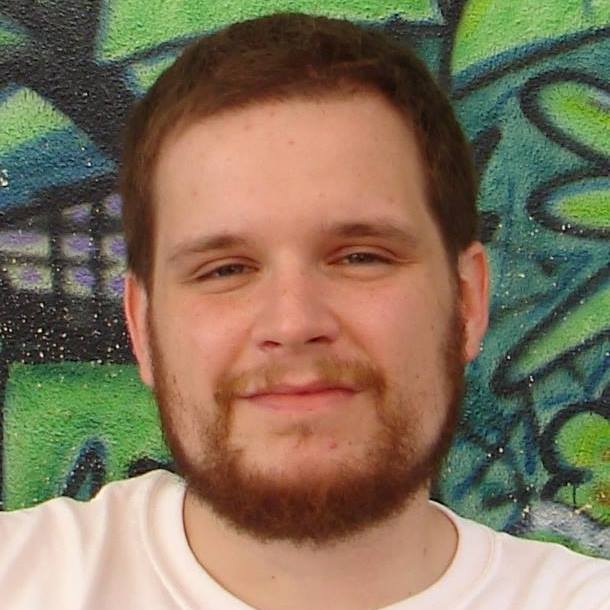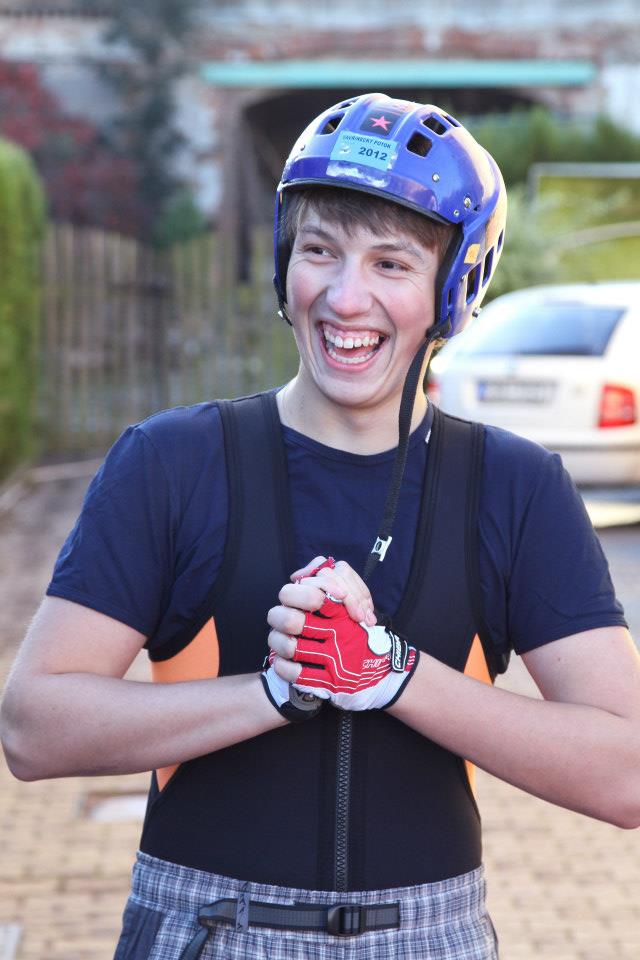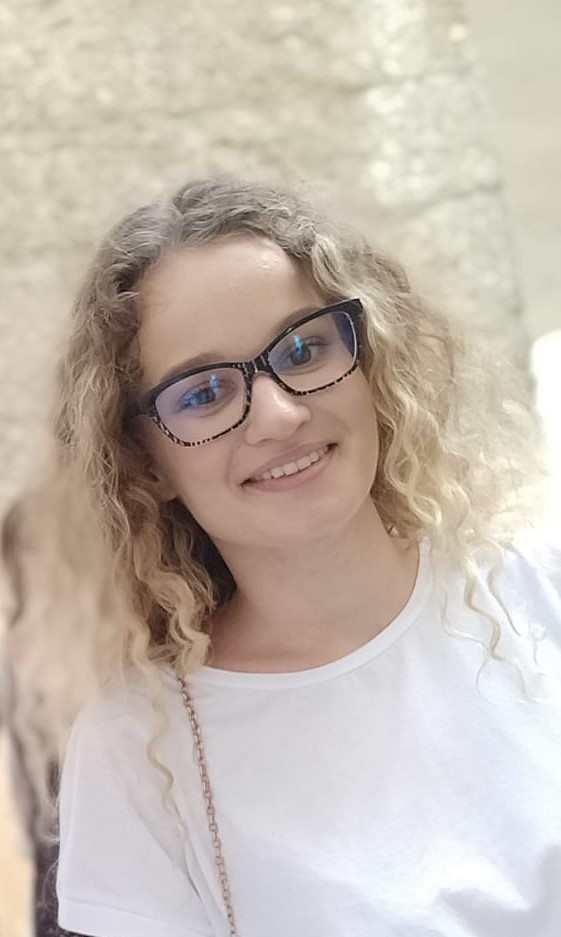Projects
Explaining source code to computers: helping them help us
 People use programming languages to talk to computers---mostly to boss them around and give them repetitive tasks to execute. However, computers cannot execute instructions written in high-level languages like C++, Java or Python directly---their processors can only execute very simple machine code. To help them out, we use a typically rather complex program called a compiler which reads high-level source code and translates it into low-level machine code. While enormous compilers like gcc are monumental achievements of the community with millions of lines of code and hundreds of contributors, smaller compilers or interpreters for simple, but useful languages can be written by a handful of enthusiastic people during a really cool summer school.
People use programming languages to talk to computers---mostly to boss them around and give them repetitive tasks to execute. However, computers cannot execute instructions written in high-level languages like C++, Java or Python directly---their processors can only execute very simple machine code. To help them out, we use a typically rather complex program called a compiler which reads high-level source code and translates it into low-level machine code. While enormous compilers like gcc are monumental achievements of the community with millions of lines of code and hundreds of contributors, smaller compilers or interpreters for simple, but useful languages can be written by a handful of enthusiastic people during a really cool summer school.
In this project, we are going to investigate a wide variety of programming languages as use cases for some of the most important program compilation and interpretation stages, including lexing, parsing and evaluation. After an initial short presentation of Python and relevant topics in theoretical Computer Science, reading and programming assignments will be handed out dependent on complexity and team size. The general plan is to code up interpreters for simple languages with very different purposes, including, time permitting, our own custom-built languages. The student will learn how to read and/or write a specification for a language as well as syntactically and semantically analyse source code written in the language.
Marko Horvat
Faculty of Science, University of Zagreb, Croatia
Marko is currently a postdoc at the Department of Mathematics, Faculty of Science, University of Zagreb, Croatia. His research and teaching tends to be in theoretical Computer Science, such as formal verification in Information Security. He studied Maths---mostly Logic---in Zagreb, started his PhD in Computer Science at ETH Zurich, completed it at the University of Oxford and he did a postdoc at MPI-SWS in Kaiserslautern, Germany. Nowadays he can be seen thinking about computable topology. In his free time, Marko enjoys video and board games, post-punk and metal music, and coffee.
To fold or not to fold? RNA structure and function
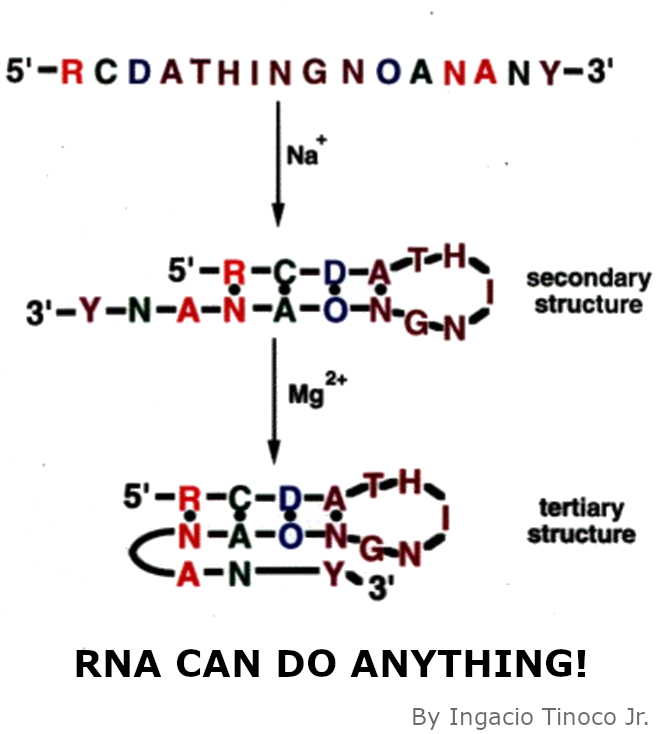 According to the central dogma of molecular biology, RNA is often considered to be “just” the messenger of the genetic information between DNA to proteins. But RNA is not just some “wiggly” noodle floating in the cytoplasm. It can do much more, it also supplies the amino acids for translation (tRNA), catalyzes chemical reactions (rRNA, ribozymes) as well as regulates various pathways in the cell (miRNA, siRNA, sncRNA). In fact, RNA can do anything! And it is not only the sequence, but similarly to proteins, also the structure that matters.
According to the central dogma of molecular biology, RNA is often considered to be “just” the messenger of the genetic information between DNA to proteins. But RNA is not just some “wiggly” noodle floating in the cytoplasm. It can do much more, it also supplies the amino acids for translation (tRNA), catalyzes chemical reactions (rRNA, ribozymes) as well as regulates various pathways in the cell (miRNA, siRNA, sncRNA). In fact, RNA can do anything! And it is not only the sequence, but similarly to proteins, also the structure that matters.
In this project, we will focus on the RNA structure and its functional consequences. First, we are going to employ several RNA structure prediction algorithms in order to verify their accuracy by comparing with the known RNA elements from the literature. Once we have done that and gained some experience, we will be able to look for specific elements within various RNA sequences, including human genes, tRNAs or viral genomes. After all of this, you would have learned what is the connection between RNA structure and its function with a little bit of coding as well.
Lukáš Pekárek
Julius Maximilian University of Würzburg - Helmholtz Institute for RNA-based Infection research Infection biology, Germany
Lukáš is a PhD student at the University of Würzburg, Germany. He works as a doctoral researcher at the Helmholtz Institute for RNA-based Infection research in Neva Caliskan’s group focused on Non-canonical translation events. He is currently working on the use of single-molecule techniques to unveil how viruses hijack our cells. Before that, he did his Bachelor and Master at the University of Chemistry and Technology in Prague. Outside the lab, he likes white-water canoeing and camping.
Catching cancer culprits by their DNA fingertips
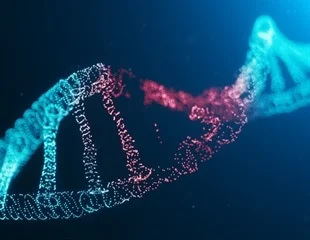 Our genomes are constantly suffering damage from factors outside the cell, such as environmental factors, or from harmful molecules produced by normal cell metabolism. Cells are often not able to repair the DNA damage caused by different factors which may lead to the development of cancer. So far, scientists have identified multiple distinct fingerprints of damage in the DNA, known as a mutational signature, that are left by specific causes of cancer, like ultraviolet light and tobacco use. These unique mutational signatures help us understand how certain cancers have developed and how they could have been prevented. Also, mutational signatures are starting to show their importance in providing a better diagnosis and more effective therapy for a patient.
Our genomes are constantly suffering damage from factors outside the cell, such as environmental factors, or from harmful molecules produced by normal cell metabolism. Cells are often not able to repair the DNA damage caused by different factors which may lead to the development of cancer. So far, scientists have identified multiple distinct fingerprints of damage in the DNA, known as a mutational signature, that are left by specific causes of cancer, like ultraviolet light and tobacco use. These unique mutational signatures help us understand how certain cancers have developed and how they could have been prevented. Also, mutational signatures are starting to show their importance in providing a better diagnosis and more effective therapy for a patient.
In this project, we are going to analyze mutational signatures in cancer patients to identify which specific processes are responsible for the development of cancer. Our main tool in this project is going to be the programming environment R. Besides learning a bit of basic R, we will learn how to obtain publicly available genomic data, analyze mutations and detect specific mutational signatures using machine learning algorithms. Moreover, we will analyze the association of our mutational signatures with distinct clinical outcomes of patients.
Paula Štancl
Faculty of Science, University of Zagreb, Croatia
Paula is currently a PhD Student at the Faculty of Science, Croatia. As a part of the Bioinformatics group at her faculty, she is interested in the mutational landscape of cancers and its association to different chromatin features. During her high school years, she participated at S3, and later went on as a Swaphop leader in 2016. In her free time, she likes to play video games and watch movies.
Giving attitude – can opinions be changed?
 Today, we are faced with an overwhelming political and moral polarisation in our society. Opinions are getting radicalised and are being more diverse than ever. Learning about what goes into forming an attitude or an opinion can give great insight into the way people think or learn. This way, we can also understand the media world better and it's part in the forming of the narratives of many social currents and try to shield ourselves from unreliable news and information sources. When we reach an understanding of these mechanisms, we can try to build a more understanding society and even develop a variety of social programmes which can help to prevent stigma, prejudice or any other kind of negativity surrounding unfounded opinions.
Today, we are faced with an overwhelming political and moral polarisation in our society. Opinions are getting radicalised and are being more diverse than ever. Learning about what goes into forming an attitude or an opinion can give great insight into the way people think or learn. This way, we can also understand the media world better and it's part in the forming of the narratives of many social currents and try to shield ourselves from unreliable news and information sources. When we reach an understanding of these mechanisms, we can try to build a more understanding society and even develop a variety of social programmes which can help to prevent stigma, prejudice or any other kind of negativity surrounding unfounded opinions.
In this workshop, the participants will be able to learn about psychology as a science, especially social psychology, and its many forms of research methods including experimental, non-experimental and qualitative methods. They will conduct their own experiment, write a scientific paper based on their findings, identify all the threats that can compromise the validity of their results and be introduced to basic statistical knowledge used in social sciences research. Learning about the way attitudes, opinions and prejudice are formed is also included in the workshop. In the end, participants will plan their fictional programme to fight misinformation, fake news and fight injustice. They will also design a brochure on the same topic.
Iva Marketanović
Faculty of Croatian Studies, Department of Psychology, University of Zagreb, Croatia
Iva Marketanović is currently a bachelor's student at the Faculty of Croatian Studies at the University of Zagreb. She does active volunteer work as a mental health educator for high school students and in organisations that are focused on correcting social injustice, especially gender discrimination. She has participated in the organisations of many scientific summits and works on the promotion of psychology as a science every day. Her other passions include theatre and film.
